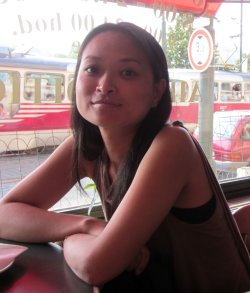
My research scope is information ethics, especially focusing on “gender and computing”, and “children’s human well-being in AI-driven society”. I have completed my doctorate in political science in 2007. On another front, I’ve been working with computer scientists in Human Computer Interaction/Human Robot Interaction research since 2010. Currently I work on exploring the ethical impact on children’s well-being by using social robots for child rearing, with international researchers in social robotics and also in information ethics. The challenge for me is to acquire theoretical knowledge with practice in order to understand who I am, who we are, how we live in harmony with other people, society, nature, technology and the environment etc.
The fact that we usually treat matters of good and evil in courses in “morals’ or “ethics” may indicate how little we know about them...
Hannah Arendt, The Life of the Mind (1971)
Information Ethics • AI ethics • Social Robots • Gender • Well-being
Dec. 2020 - present:
Wissenschaftliche Mitarbeiterin, Fakultät für Sozialwissenschaft, Ruhr-Universität Bochum
2012 - present:
Research Fellow, The Centre of Business Information Ethics, Meiji University, Tokyo, Japan
2012 - present:
Visiting Researcher, IT Department, Uppsala University, Uppsala, Sweden
2011 - 2012:
Assistant Professor, College of Industrial Technology, Nihon University, Chiba, Japan
2010:
Postdoctoral Researcher, IT Department, Uppsala University, Uppsala Sweden
Books:
Asai, R., 2021, “Gender and Computing”, in Information Ethics, K.Murata and Y.Orito. (eds), Minerva shobo (forthcoming).
Asai, R., 2019, “Social Media in a Disaster: Technology, Ethics and Society in Tōhoku in March 2011”, in Tetsugaku Companion to Japanese Ethics and Technology, Lennerfors, T.T., and Murata, K. (eds), Springer, ISBN: 9783319590257.
Kavathatzopoulos, I., and Asai, R., 2018, "Philosophy as the Road to Good ICT", in This Changes Everything – ICT and Climate Change: What Can We Do?, Kreps, D., Ess, C., Leenen, L., and Kimppa, K., (eds), Springer, ISBN: 9783319996059.
Papers:
Asai, R. (2021), Gender Issues in Computing, in Murata, K. & Orito, Y. eds. Introduction to Information Ethics: Pursuing Well-being in the ICT Society, Minerva-shobo, pp.181-191, ISBN: 978-4623091256.
Asai, R. (2021), Ethics and Social Robots: How do I live with a social robot?. Normal Technology Ethics: Proceedings of the ETHICOMP 2021, Universidad de La Rioja, pp. 281-284, ISBN: 9788409286713.
Asai, R. and Yanagihara, S. (2021), The Impact of working from home and distance learning on family relationships: viewpoint of sharing information and privacy, the proceeding of the Annual Conference of Information Management, pp.49-52.
Asai, R., 2020, Artificial Intelligence and Gender: How AI will change women’s work in Japan, The Proceedings of ETHICOMP2020, pp.301-303.
Asai, R., 2020, AI and Ethics for Children: How AI can contribute to children’s wellbeing and mitigate ethical concerns in child development, The Proceedings of ETHICOMP2020, pp.291-294.
Kavathatzopoulos, I., Asai, R., Adams, A.A., and Murata, K., 2017, Snowden’s revelations and the attitudes of students at Swedish universities, Journal of Information, Communication and Ethics in Society, vol.15(3), pp.247-264.
Asai, R., 2017, Techno-Parenting, Journal of Information and Management, vol.37(2), pp.6-21.
Kavathatzopoulos, I., and Asai, R., 2015, Judging the complexity of privacy, openness and loyalty issues, SIGCAS Computers and Society, 45(3), pp.416-419.
Seminar/Panel:
Asai, R., 2019, AI and Child Wellbeing, Cogito Ergo Sum? AI in Japan and Sweden, JSPS Alumni Club in Sweden Activity Seminar, at Linkoping University, Sweden.
Ganascia, J.G., Dogan, E.B., Harbers, M., Asai, R., 2018, Autonomous Machines: What are the Ethical Issues?, ESOF (EuroScience Open Forum) 2018, EuroScience, in Toulouse, France.
Projects:
Ryoko and her colleague from Lund University Sweden have started to work on a new research project “designing self-care for increased health of older people in the digital age” this November. Their project has been granted as an academia/Industry collaborations project by the Swedish funding association Vinnova. You can find more information here.